America has long been home to iconic brands that have shaped consumer culture and become household names. These brands once dominated their industries and built loyal customer bases, but in recent years, many have found themselves struggling to maintain relevance in an ever-changing market. Whether due to shifting consumer preferences, competition from newer companies, or failure to adapt to modern trends, these classic American brands are slowly fading away. Here are 13 of them that are disappearing fast — if they haven’t already!
1. RadioShack
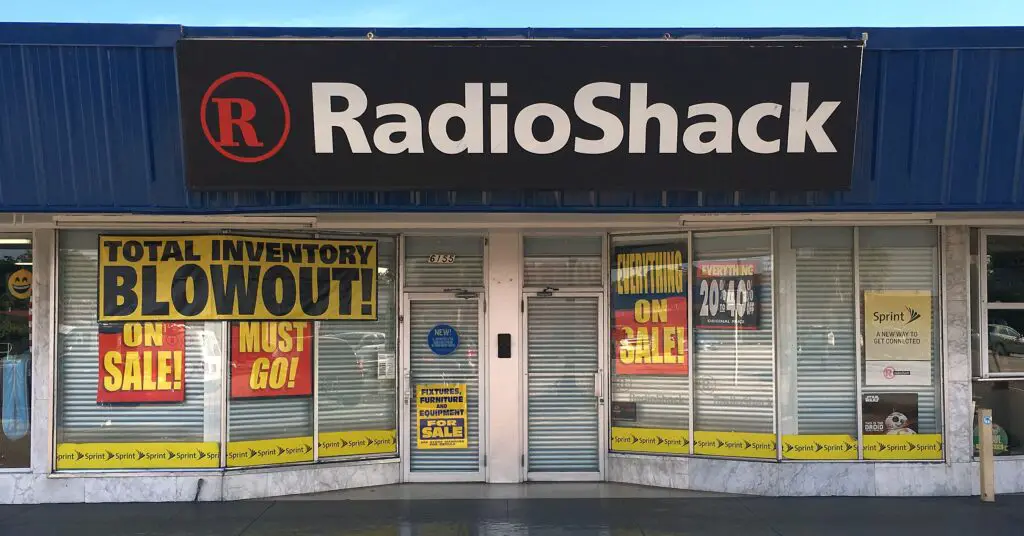
RadioShack was once a go-to destination for electronics and gadgets, offering everything from batteries to computer parts. With locations in nearly every town across America, the brand became synonymous with electronic components and hobbyist gear. However, with the rise of online retailers like Amazon and big-box stores like Best Buy, RadioShack found itself unable to compete.
Despite attempts to rebrand and modernize, RadioShack couldn’t keep pace with the digital age. Its physical stores have dwindled, and many of its products are now available only through online marketplaces. Today, RadioShack’s presence is limited, and it’s a far cry from the chain that once had a significant footprint across the country.
2. Sears
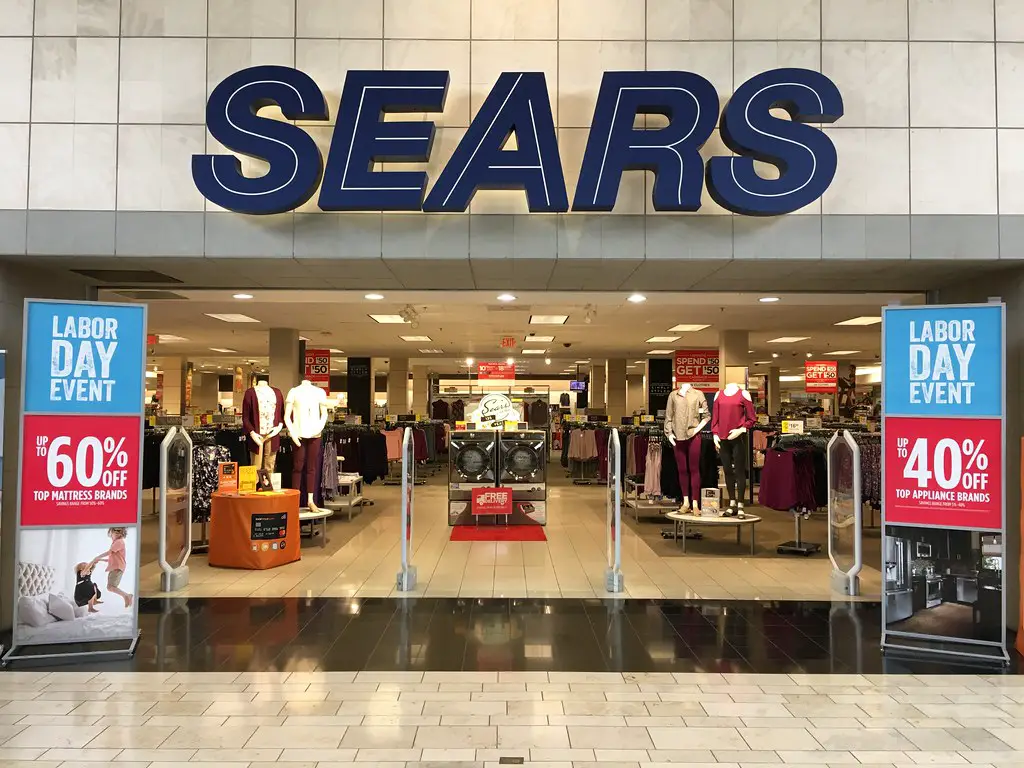
Sears, once one of the largest department store chains in the United States, became a symbol of mid-century retail success. Known for its wide range of products, including clothing, appliances, and tools, Sears was a staple in American shopping malls. However, over time, it faced intense competition from discount retailers like Walmart and Target, as well as the rise of online shopping.
The company’s failure to innovate and adapt to the changing retail landscape has led to its decline. Today, many of its once-thriving stores have closed, and the brand is struggling to survive. Despite efforts to reinvent itself, Sears is quickly fading into the background of American retail history.
3. Blockbuster
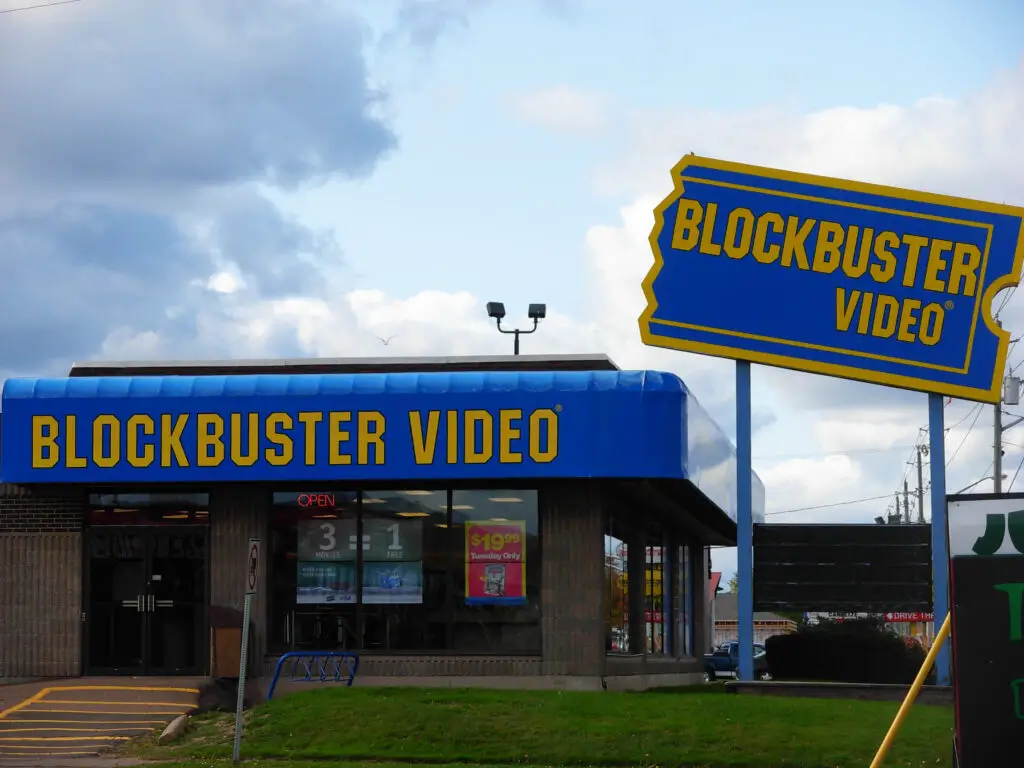
Blockbuster was the ultimate destination for movie rentals in the 1990s and early 2000s, with thousands of stores across the country. Families and movie lovers alike flocked to Blockbuster to rent the latest films or to browse the vast selection of VHS and DVD titles. However, the rise of digital streaming services like Netflix and Hulu made physical movie rentals obsolete.
Blockbuster’s failure to adapt to the changing entertainment landscape led to its downfall. By the time the company attempted to transition to an online model, it was already too late. Today, only one Blockbuster store remains, a nostalgic relic of a bygone era.
4. Kmart
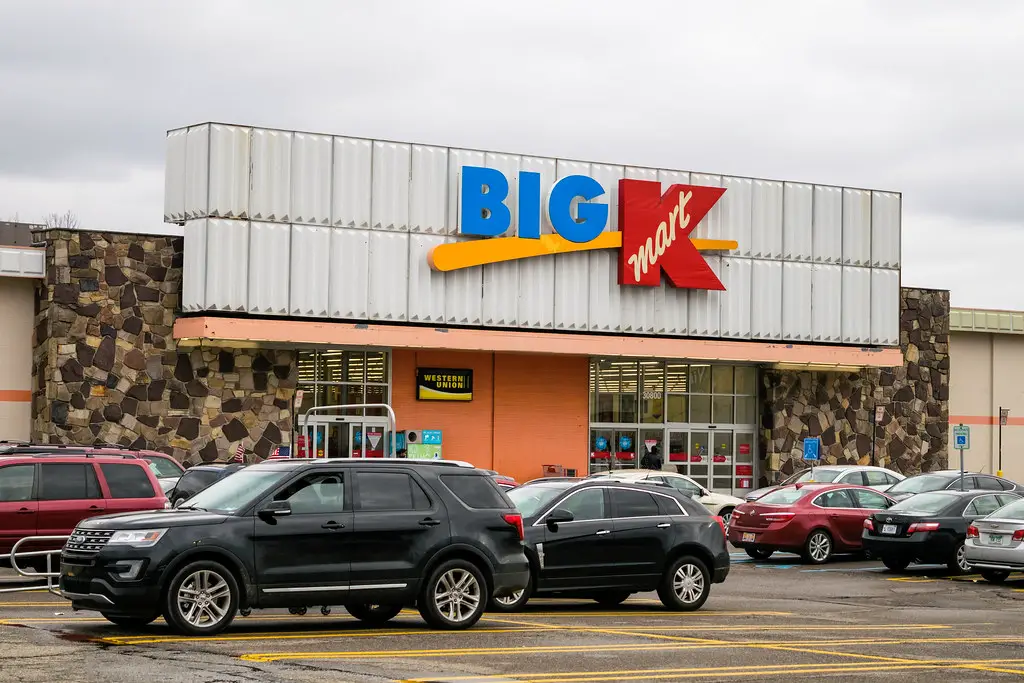
Kmart, once a dominant discount retailer, had a significant presence in American shopping malls throughout the 1980s and 1990s. Known for its affordable prices and wide range of products, Kmart became a favorite for budget-conscious shoppers. However, the brand faced stiff competition from Walmart, Target, and other retailers, and it struggled to keep up.
After years of declining sales and store closures, Kmart is now a shadow of its former self. While it still operates a few locations, many of its stores have been shut down, and the brand’s relevance has diminished. Kmart’s failure to evolve in the face of changing consumer habits has led to its rapid decline.
5. Toys “R” Us
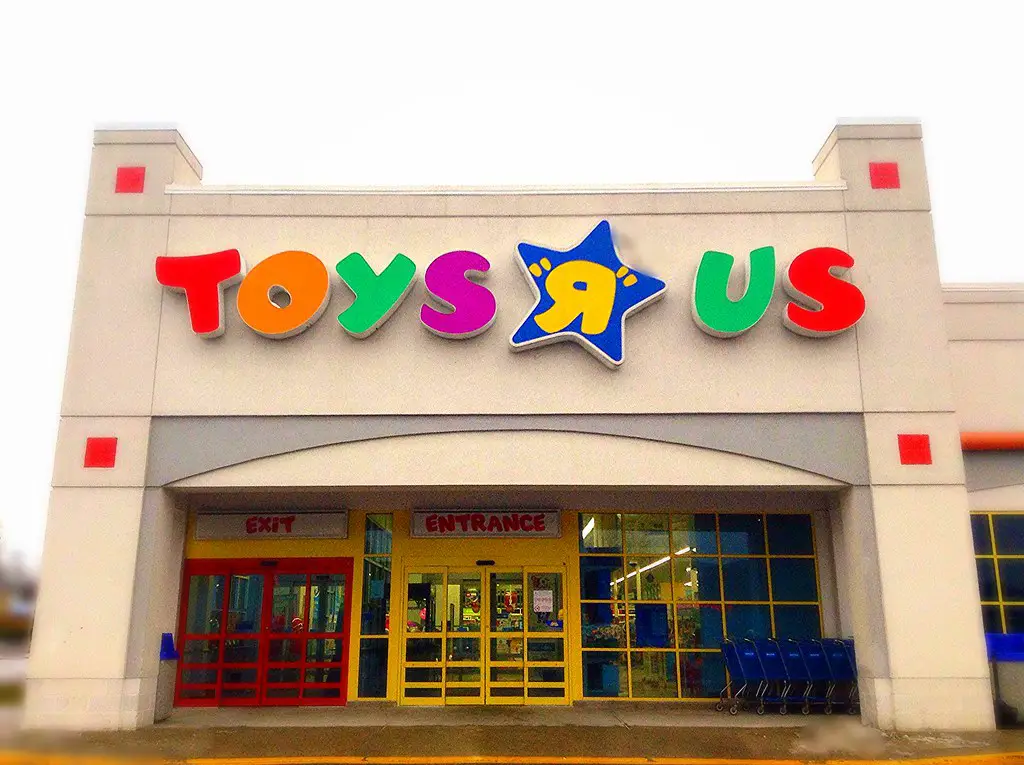
Toys “R” Us was once the go-to store for children’s toys, dominating the toy retail market for decades. With its expansive stores and wide selection of toys, it was the place for parents to shop for their kids’ birthdays and holidays. However, in the age of e-commerce and online shopping, Toys “R” Us struggled to compete with the convenience of Amazon and other online retailers.
Despite attempts to reinvent itself, including partnerships with other companies and a brief revival of its brick-and-mortar stores, the brand ultimately filed for bankruptcy. While there are a few Toys “R” Us stores still in operation, the brand has lost much of its former glory and is no longer the dominant force it once was.
6. J.C. Penney

J.C. Penney was once a staple of American department stores, known for its wide range of affordable clothing, home goods, and beauty products. The brand was beloved for its sales events, including its famous “Black Friday” discounts, and its catalog was a major part of American shopping culture. However, in recent years, the company has faced a decline in sales and store closures.
J.C. Penney’s struggles to adapt to the rise of online shopping, along with its inability to keep up with changing fashion trends, have led to its downfall. Despite attempts at rebranding and restructuring, J.C. Penney is now a far cry from the retail giant it once was. The future of the brand remains uncertain as it continues to close locations and fight for relevance in an increasingly competitive market.
7. Circuit City
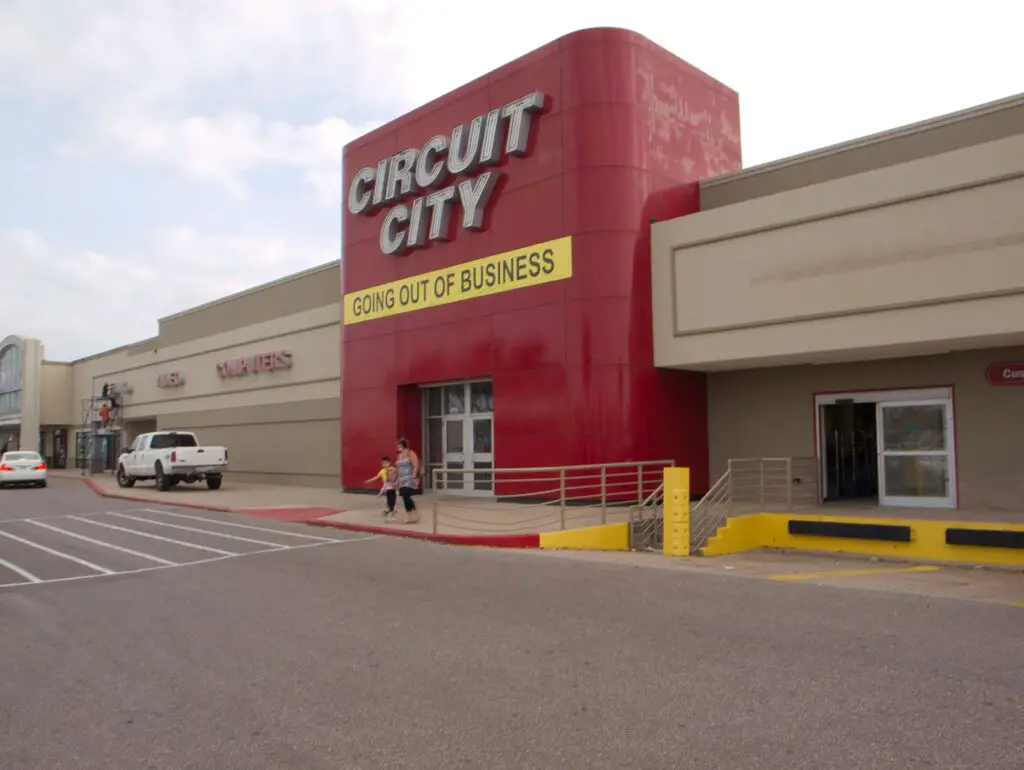
Circuit City was once a major player in the electronics retail industry, competing head-to-head with Best Buy. Known for its wide selection of electronics, appliances, and gadgets, it was a favorite destination for tech enthusiasts and bargain hunters alike. However, as the retail landscape shifted and more people turned to online shopping, Circuit City struggled to keep up.
The company filed for bankruptcy in 2008, and many of its stores were closed or liquidated. Despite a brief attempt to revive the brand through an online-only model, Circuit City could not regain its former success. Today, it is mostly remembered as a once-powerful electronics retailer that failed to adapt to the digital age.
8. The Sharper Image
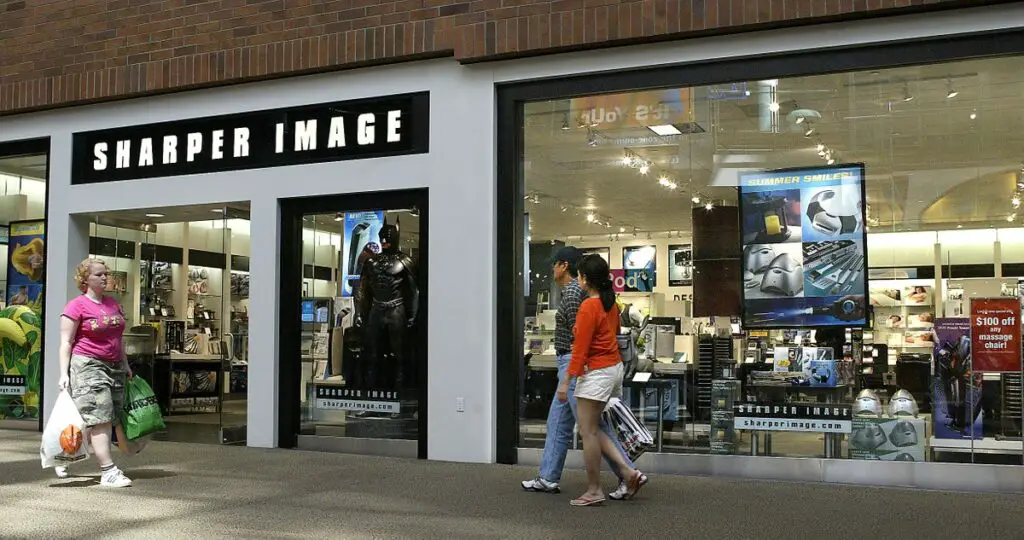
The Sharper Image was a well-known specialty retailer that offered high-tech gadgets and innovative products, many of which were marketed as futuristic or cutting-edge. In the 1980s and 1990s, The Sharper Image was synonymous with luxury and innovation, offering everything from massage chairs to air purifiers. The brand built a reputation for offering unique items that were often considered ahead of their time.
However, as consumer tastes shifted and online retailers took over the market, The Sharper Image began to lose its appeal. Many of its once-popular products became less innovative, and the brand’s high-end pricing alienated some customers. Today, the brand exists mostly through a limited online presence, and its iconic catalog is a thing of the past.
9. Polaroid
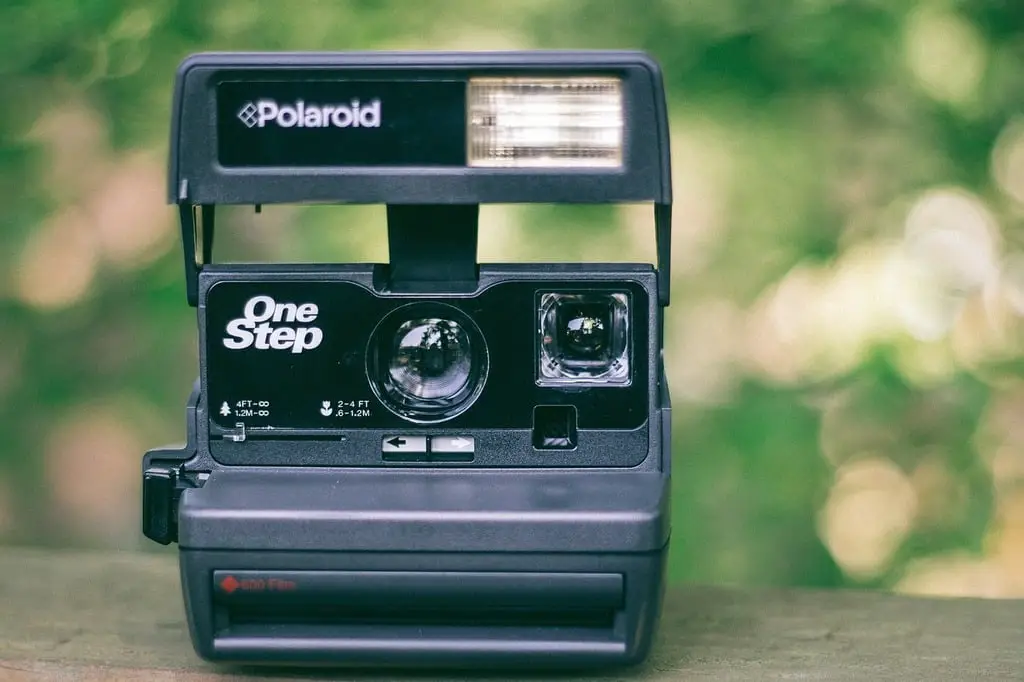
Polaroid was a household name for decades, famous for its instant cameras that allowed people to capture moments and print photos immediately. For many, Polaroid’s instant cameras represented the future of photography, providing a unique experience that digital cameras could not match. However, as digital cameras and smartphones with built-in cameras became more accessible, Polaroid’s once-innovative technology quickly became obsolete.
Despite efforts to reinvent itself with new instant camera models and partnerships with other companies, Polaroid could not regain its former dominance. While the brand still exists in a smaller capacity, it no longer has the widespread appeal it once enjoyed. Today, Polaroid is largely seen as a nostalgic relic of the pre-digital era.
10. Oldsmobile
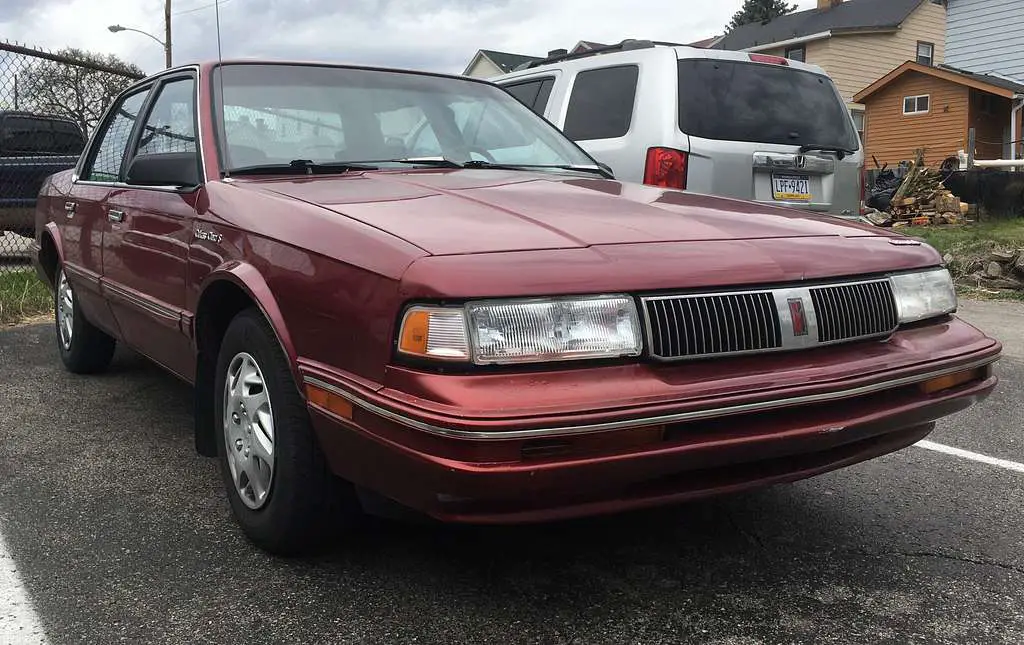
Oldsmobile was once one of the most well-known car brands in America, with a rich history that spanned over a century. Known for its dependable and stylish vehicles, Oldsmobile enjoyed a loyal customer base and was synonymous with American-made quality. However, the brand was eventually phased out by its parent company, General Motors, in 2004 due to declining sales and a shift in consumer preferences.
Despite being one of the oldest car brands in America, Oldsmobile couldn’t keep up with the changing automotive market. Today, the Oldsmobile name is no longer in production, and its models have become rare collector’s items. The brand’s discontinuation marked the end of an era in American automotive history.
11. Hostess
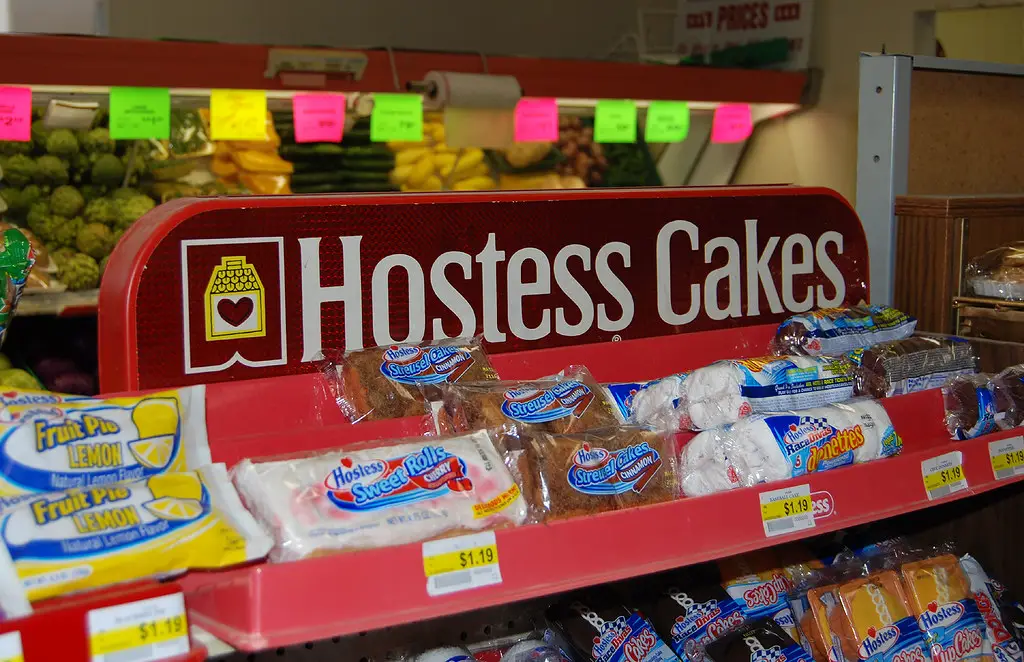
Hostess, the iconic maker of snack cakes like Twinkies and Ho Hos, was once a beloved brand with a strong following. Its products were a staple in lunchboxes and snack cabinets across America, and the brand became synonymous with American comfort food. However, Hostess faced financial difficulties in the early 2000s and filed for bankruptcy in 2012.
Despite a brief revival after its sale to a new parent company, Hostess has struggled to regain its former dominance in the snack food industry. Changing consumer preferences, including a greater focus on healthier eating, have led to a decline in sales of Hostess products. While some of its items are still available, the brand is no longer as ubiquitous as it once was.
12. Pier 1 Imports
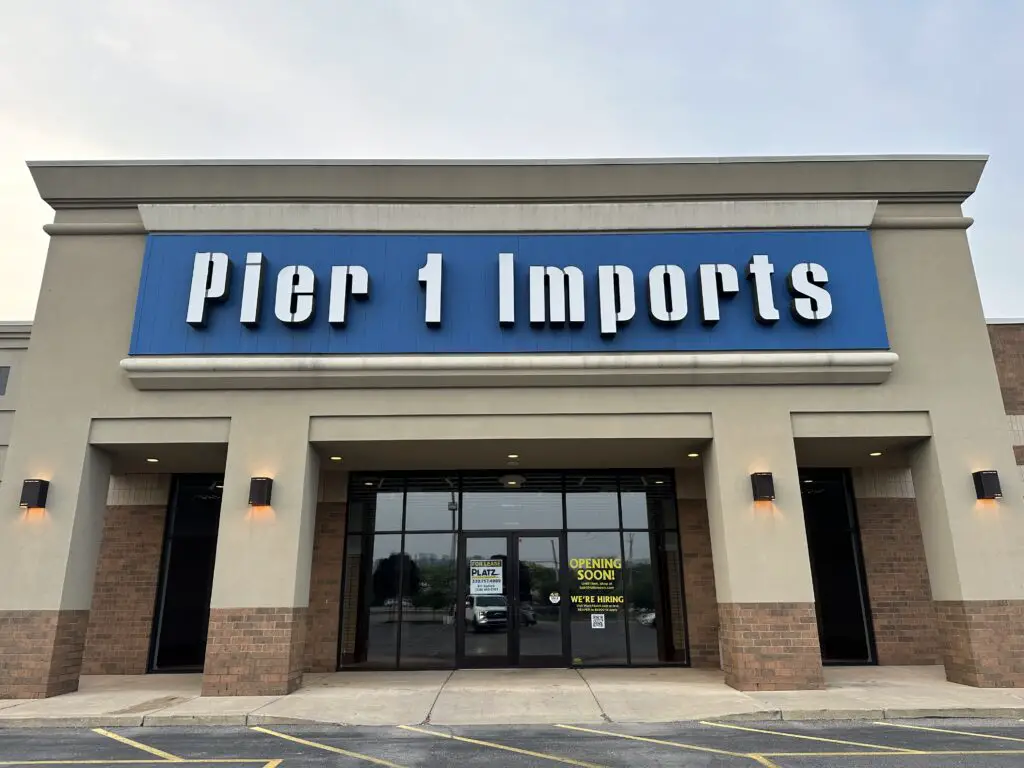
Pier 1 Imports was once a go-to retailer for unique home furnishings, offering a wide array of eclectic and stylish furniture, decor, and accessories. The store’s signature style, with an emphasis on vibrant colors, bohemian designs, and global-inspired pieces, attracted many consumers looking to personalize their living spaces. For years, Pier 1 was a favorite among shoppers looking for distinctive, often exotic, home goods.
However, with the rise of online shopping and competition from larger retailers like Target and Wayfair, Pier 1 struggled to maintain its footing. The brand filed for bankruptcy in 2020, closing many of its physical stores, and it has since downsized significantly. While it still has a limited online presence, Pier 1 no longer commands the same influence it once did in the home decor market.
13. BlackBerry

Once the king of the smartphone world, BlackBerry was a leader in business communication, offering reliable, secure, and functional devices. The brand became synonymous with productivity, and its devices were a must-have for professionals. However, as the smartphone market evolved with the introduction of the iPhone and Android devices, BlackBerry failed to keep up with changing consumer preferences.
Despite efforts to modernize its product offerings and transition to a software-based company, BlackBerry’s hardware business faded. Today, BlackBerry’s once-dominant market position is a distant memory, and its devices are no longer widely used. While the company continues to exist in a smaller capacity, BlackBerry no longer holds the influence it once did in the tech world.
